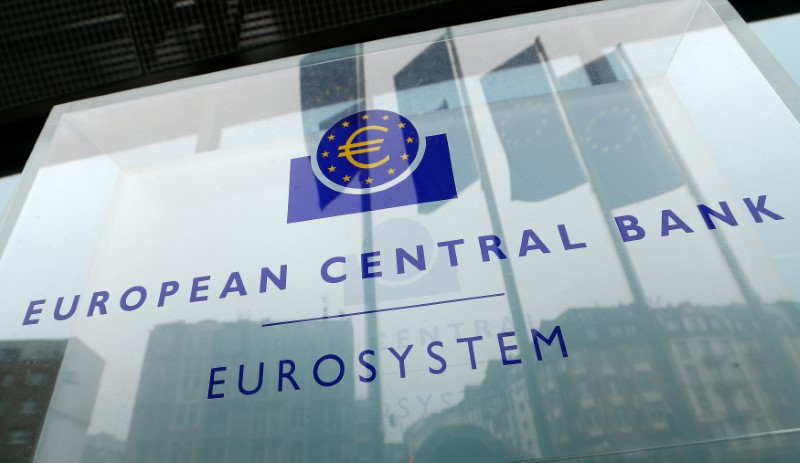(Bloomberg) -- Euro-zone banks are gearing up for another dose of ultra-cheap funding as the European Central Bank gives them every possible incentive to lend to the pandemic-stricken economy.
Thursday’s installment of targeted loans, known as TLTROs, will give banks long-term loans for an interest rate as low as minus 1% -- meaning the ECB pays them to borrow -- as long as they lend the cash onto companies and households.
Attractive as the offer is, banks are already well-funded after taking a record 1.3 trillion euros ($1.5 trillion) in the previous operation three months ago. Estimates this time range from 10 billion euros by Barclays (LON:BARC) Plc to 200 billion euros at NatWest Markets Plc. The result will be announced at 11:30 a.m. in Frankfurt.
“More than 100 billion euros would mean we’re in business,” said Rishi Mishra, an analyst at Futures First.
The TLTRO has become one of the ECB’s most-important tools because it more than compensates banks for the official policy rate of minus 0.5%. The policy rate is a charge on banks’ deposits, undercutting profitability and potentially dissuading them from lending.
Some economists reckon the ECB has stumbled on a dual-rate system that allows it to cut borrowing costs with no practical limit without damaging the banking system.
Still, the extraordinary access to cheap cash -- combined with other monetary stimulus such as massive bond-buying programs -- does raise the prospect of side effects such as elevated asset prices and risky lending.
It could even undermine the ECB’s influence over short-term market rates. Three-month Euribor -- the rate at which banks can theoretically borrow from one another -- fell to a record low of minus 0.508% this week.
When it dropped below the ECB’s policy rate last week, that was a phenomenon that had happened only once before, in August 2019, shortly before the central bank cut its deposit rate.
Excess liquidity in the euro zone, the money over and above that needed to finance the economy, will probably soon pass 3 trillion euros for the first time.
More stimulus could be ahead. The ECB projects that the economy will contract 8% this year, and the inflation rate has fallen below zero for the first time in four years. Rising coronavirus infections could worsen the outlook.
Economists predict the 1.35 trillion-euro pandemic bond-buying program will be expanded again this year. Markets aren’t pricing another 10 basis-point rate cut until October 2021.
Piet Christiansen, chief strategist at Danske Bank A/S in Copenhagen, estimates that excess liquidity will rise by another 600 billion euros to 800 billion euros by the summer of 2021.
“We think this dovish view should and will prevail,” said Frederik Ducrozet, chief global strategist at Banque Pictet & Cie in Geneva.
©2020 Bloomberg L.P.
